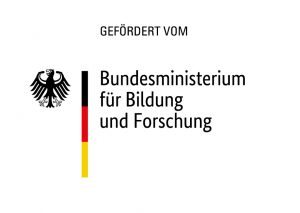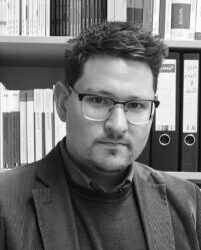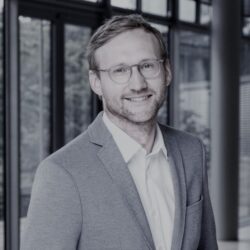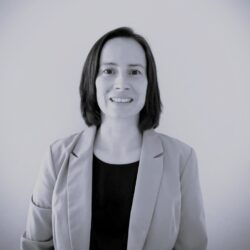The BMBF project “Innovative Interventions for Discursive Integration (IndI)” is researching how online discourse can be made more inclusive. The project is part of the BMBF-funded “Integrated Research” (the website is only available in german) cluster.
The project focuses on online discussions, which have increasingly become a part of our everyday lives in recent years. However, the often poor quality of these discussions prevents many people from getting involved. There are also other barriers to access for certain population groups. Interventions based on artificial intelligence (AI) could help both to improve the quality of online discourse and to remove barriers to access.
The project team, consisting of social scientists and computer scientists, aims to explore this potential. It is pursuing an open science approach that systematically integrates non-scientific stakeholders into the research and development process on the one hand and openly communicates and utilizes the results of the research on the other. In a first step, the researchers work together with citizens, civil society and organizers of online discourses to collect ideas on what constitutes integrative online discourses and how existing discourse environments could be improved. Suitable AI interventions are then developed on the basis of these co-creative formats. For example, automated moderation or recognition of hate speech are conceivable. The interventions developed are then tested and discussed with users. This feedback is then fed back into the research process in order to ultimately develop an AI application. At the end of the project, the team will conduct a scientific experiment to analyze whether the AI application actually leads to more inclusive online discourse and what users take away from this discourse.
If we succeed in using AI interventions to make online discourse more inclusive, these interventions can be used wherever discussions take place online: For example, in social media such as Facebook or under YouTube videos, on news websites or as part of digital public participation processes.
The project, which was launched on 1 November 2023, is one of a total of five sub-projects in the 3rd sub-cluster “Perspectives on open science in a digitalized democracy”.The coordination of this cluster is also based at DIID and is being carried out by Dr. Katharina Gerl.The total funding amount over three years is around 690,000 euros.Information on the project can be found on the BMBF website here (the website is only available in german).

Contact
Dr. Dennis Frieß (Coordinator)
Board, Communication Studies, DIID-Team

Dr. Dennis Frieß is coordinator of the DIID. Since May 2019, he was coordinator of the NRW Research College Online Participation. From 2014 to 2019, he was a research assistant at the Chair of Communication and Media Studies III at HHU-Düsseldorf and a staff member at DIID. He studied Social Sciences, Law and Communication Science at the University of Erfurt (B.A.) and Political Communication in Düsseldorf (M.A.). His doctoral thesis focused on the analysis of deliberative online publics. His research focuses on political (online) communication, online deliberation, and online participation.
At the DIID, he is particularly interested in online-supported deliberation processes and the democracy-relevant expectations associated with online participation offerings.
Contact
Jun.-Prof. Dr. Tobias Escher
Board, Computer Science, Political Science, Sociology

Tobias Escher leads a BMBF-funded junior research group investigating the effects of participation processes on the quality and legitimacy of political decisions, especially in the context of the transformation to sustainable mobility in the local context. Previously, he supervised the DIID as well as the NRW Forschungskolleg Online-Partizipation at the HHU-Düsseldorf as scientific coordinator. He is a social scientist and holds a PhD from the Oxford Internet Institute at the University of Oxford. He can also draw on his basic knowledge of computer science when assessing the possibilities and limits of digitization.
His research focuses on the evaluation of political participation online and offline. In particular, he addresses the question of the extent to which citizen participation contributes to higher quality and legitimacy/acceptance of political decisions. He has developed a teaching module on the theory and practice of online participation, from which, among other things, a project on student participation in teaching has emerged.
Photographer: ©Tilman Schenk
Projects
Contact
Prof. Dr. Marc Ziegele (Speaker)
Board, Communication Studies, DIID-Team

Marc Ziegele has been Professor of Communication and Media Studies at HHU-Düsseldorf since February 2024. He previously held the Junior Professorship for Communication and Media Studies with a focus on “Political Online Communication”. At the same time, he is head of the junior research group “Deliberative Discussions on the Social Web” funded by the Ministry of Culture and Science of the State of North Rhine-Westphalia. Previously, he was a research assistant at the Institute for Journalism at Johannes Gutenberg University Mainz and studied media economics at the same institute. His research focuses on participation and discussions of citizens on the Internet. In the junior research group based at DIID, he is investigating measures to improve the quality and impact of users’ public discussions about political media topics – so-called online public-political connection communication.
It also researches the causes and consequences of media trust as well as various aspects of citizens’ social web use at the interface of communication science and psychology.
Marc Ziegele was elected speaker of the Institute by the DIID General Assembly in December 2023.
Projects
Contact
Dr. Katharina Gerl
Political Science

Dr. Katharina Gerl has been a research assistant at DIID at HHU-Düsseldorf since 2016. She studied Political Science (B.A.) at the University of Bremen and Political Communication (M.A.) at HHU-Düsseldorf. For her dissertation at the Chair of Political Science II at Heinrich Heine University, she studied the impact of digital media on political parties as organizations.
Her research interests lie in the areas of effects and acceptance of digital democratic innovations in politics and administration as well as of artificial intelligence for political opinion-forming and decision-making.

